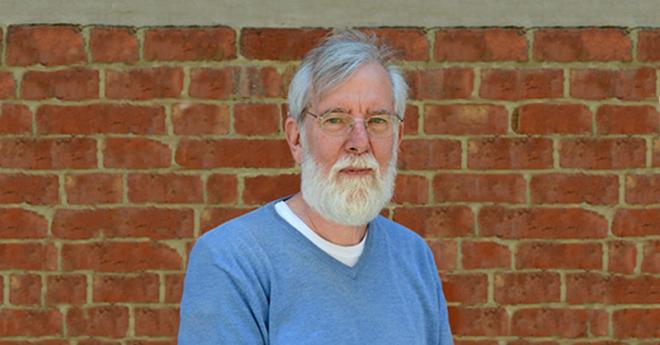- Woodward Medal for Humanities (2002)
- Centenary Medal for research services to government (2003)
- Minister's Award for Significant Contributions to Victorian Education (2010)
Sociologist and historian, Richard Teese has made major contributions to our knowledge of education systems, to public policy, and to the wider diffusion of knowledge about how well our schools work and for whom.
He pioneered the social analysis of curriculum access and achievement in school systems across Australia. Using examinations data for each Australia state, he mapped the links between who studied what subjects, how well they achieved, and their social origins and gender. This work formed the basis of his theory of structural inequality, elaborated in Academic Success and Social Power.
The social history of upper secondary education took a new turn through Teese’s study of fifty years of curriculum change in English, mathematics, chemistry and languages. He examined the nature of the cognitive and cultural demands of these subjects, which groups of students satisfied their demands, why them and how.
He is one of the first Australian scholars to measure social progress in school systems. He developed metrics for assessing the impact of schooling, first in Undemocratic Schooling and later in For the Common Weal. Applying these measures, he was able to show the contribution of the public high school system to the economic well-being of the Victorian community.
Richard Teese designed and implemented the most comprehensive destinations survey of school leavers ever undertaken in Australia. He was the architect of the On Track survey program, starting in Victoria in 2003 and later extending to Queensland (in the Next Step program). This survey gathered data on the education, training and employment destinations of all young people exiting school, analysed the links between destinations, academic achievement and socio-economic status, and provided transition reports to every school. It enabled schools to reliably measure what was happening to their students on exit and to adjust curriculum, teaching and counselling to improve outcomes.
School funding is another area of policy research in which Teese has played a major role. His work on the innovative Student Resource Package for Victorian government schools helped shift the emphasis of funding from inputs to outputs, giving schools greater flexibility in the use of their resources and focussing attention on student achievement. He led the development of a new funding model for public schools in Western Australia, which has now been implemented. At a national level, Richard Teese’s work on school funding helped strengthen the case for reform by examining how well government schools performed relative to non-government schools, whom they served, and the trend to a growing social division in the use of public and private schools. From opportunity to outcomes (2011) was commissioned by state education departments as part of the Gonski review and attracted wide attention at the time of its (unauthorised) release.
Recognised internationally for his research on equity, he was invited by the OECD to lead reviews of the school systems of Spain (2005), Scotland (2007) and Ontario (2010). In 2014, he was one of two international experts appointed to review school funding in Flanders. He has written extensively on Catholic education in France.
Areas of expertise
- Australian education systems
- Completing school
- Education policy
- Educational inequality
- Educational outcomes
- International education systems
- Performance measures
- Public and private schooling
- School finance
- Transition to university
Contact details
Awards
Recent publications
Books
Teese, R. (2014) For the Common Weal. The Public High School in Victoria 1910-2010. North Melbourne: Australian Scholarly Publishing.
Teese, R. (2013) Academic Success and Social Power: Examinations and Inequality (2nd edition). North Melbourne: Australian Scholarly Publishing.
Lamb, S., Markussen, E., Teese, R., Sandberg, S., & Polesel. J. (Eds.) (2011). School dropout and completion: International comparative studies in theory and policy. Dordrecht: Springer.
Teese, R., Lamb, S., & Duru-Bellat, M. (Eds.) (2007). International studies in educational inequality, theory and policy (in 3 vols). Dordrecht: Springer.
Refereed chapters
Teese, R. (2011). Equity, inequality and generations. In T. Eckert, A. von Hippel, B. Schmidt and M. Pietraß, Bildung der Generationen (pp.275-284). VS-Verlag.
Teese, R. (2011). Vocational education and training in France and Germany: Friend or foe of the educationally disadvantaged? In S. Lamb, E. Markussen, R. Teese, et al. (Eds.), School dropout and completion: International comparative studies in theory and policy. Dordrecht: Springer.
Teese, R., Lamb, S., & Helme, S. (2009). Hierarchies of culture and hierarchies of context in Australian secondary education. In W. Melzer & R. Tippelt (Eds.), Kulturen der Bildung. Beiträger zum 21. Kongress der Deutschen Gesellschaft für Erziehungswissenschaft (pp. 71-92). Opladen: Barbara Budrich.
Teese, R. (2007). Structural inequality in Australian education: Vertical and lateral stratification of opportunity. In R. Teese, S. Lamb & M. Duru-Bellat (Eds.), International studies in educational inequality, theory and policy: Volume 2 - Inequality in education systems (pp. 39-63). Dordrecht: Springer.
Teese, R. (2007). Time and space in the reproduction of educational inequality. In R. Teese, S. Lamb & M. Duru-Bellat (Eds.), International studies in educational inequality, theory and policy: Volume 1 – Educational Inequality: Persistence and Change (pp. 1 - 23). Dordrecht: Springer.
Refereed journal articles
Teese, R. and Derivry-Plard, M. (2014) Bourdieu: La rencontre d’un itinéraire de recherche en sociologie en Australie. Review Linhas (Special issue) XV (29): 127-141
Teese, R. (2006). Condemned to innovate, The Griffith Review, Getting smart: The battle for ideas in education, 149-159.
Conference presentations
Teese, R. (2013) Restoring the vision of public secondary education: a century to be lost or gained, presented at the Australian and New Zealand History of Education Society Conference, Brisbane, December 2013.


